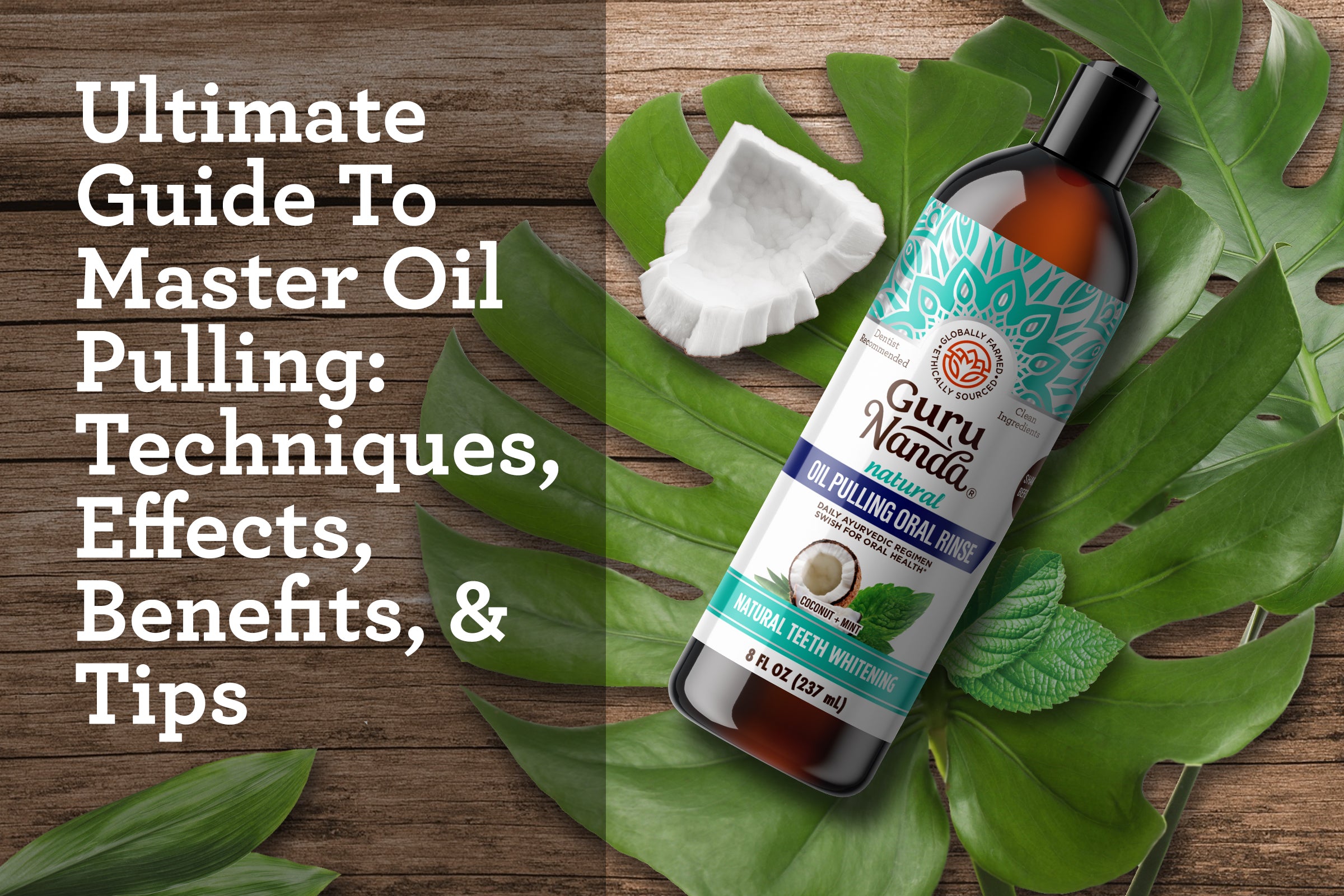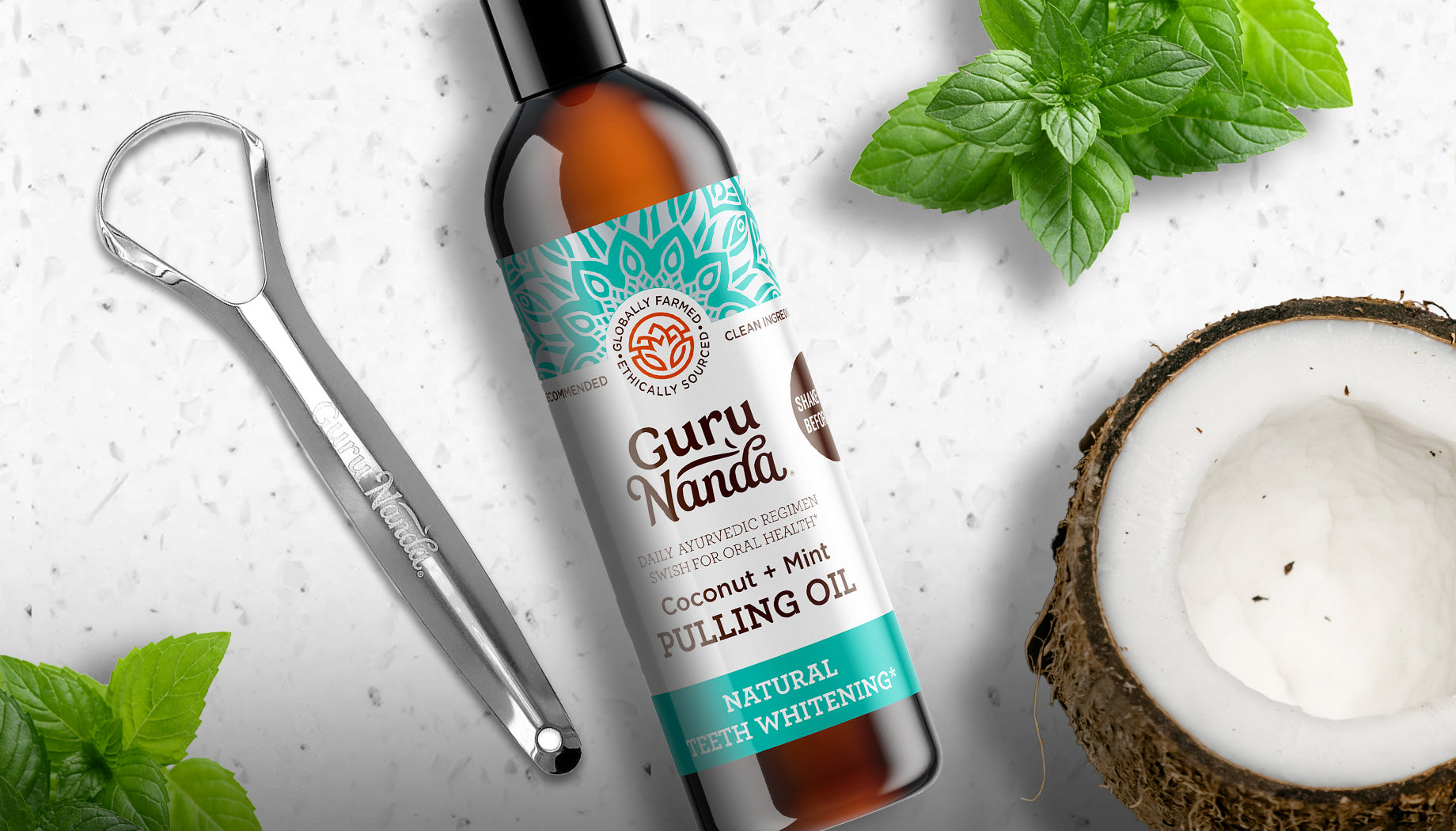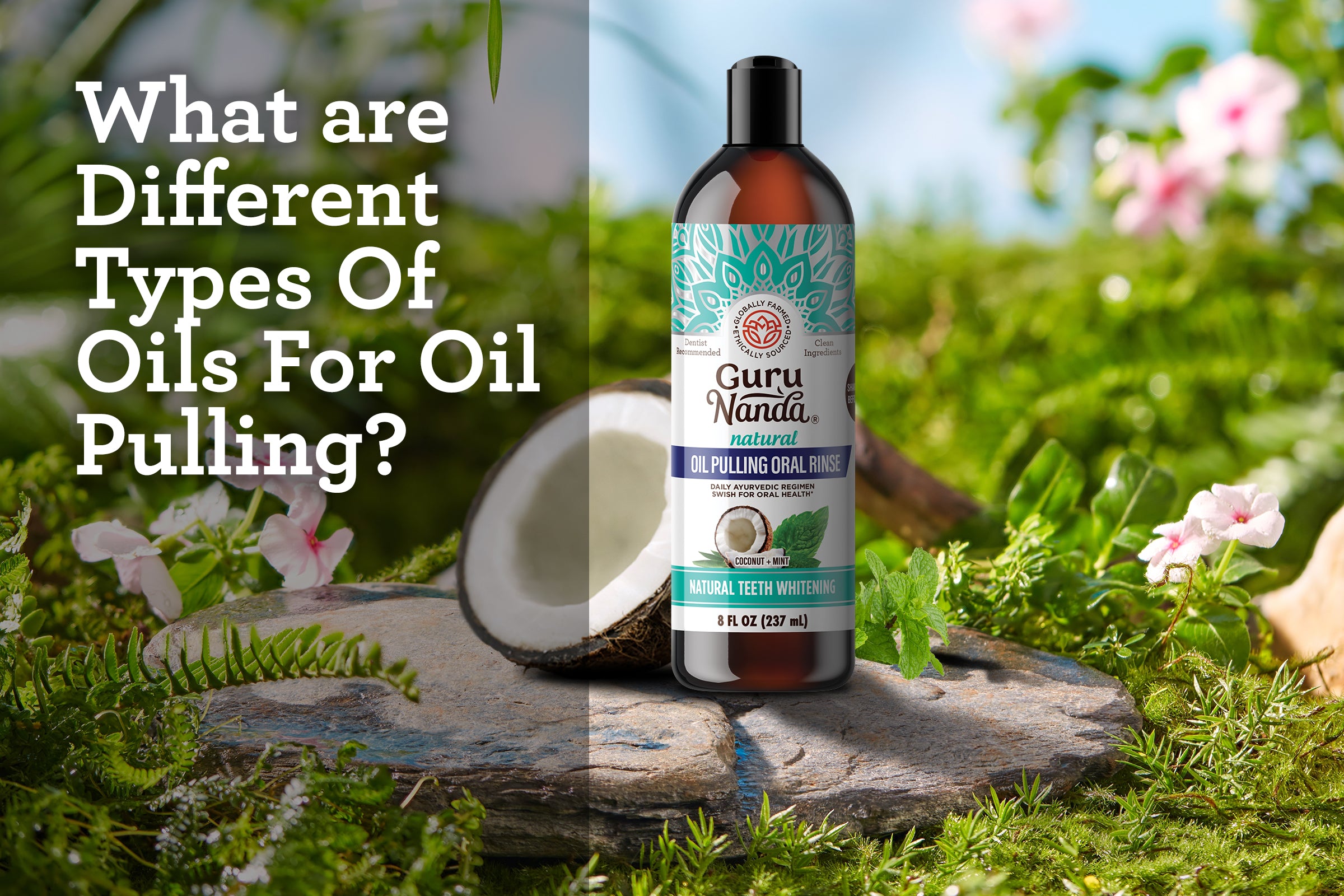Oil pulling is an ancient dental technique rooted in Ayurvedic medicine practice, involving the swishing of a tablespoon of oil (commonly coconut, sesame, or sunflower oil) in one's mouth on an empty stomach for about 20 minutes. It offers a spectrum of benefits ranging from improved oral hygiene to systemic detoxification, which has a similar effect to that of natural mouthwash.
The journey towards holistic wellness often finds its roots in ancestral wisdom. Oil pulling has its roots in Ayurvedic medicine, a traditional Indian healing system that dates back over 3,000 years. The practice is historically referred to as "Kavala" or "Gundusha." In classical Ayurveda texts, oil pulling is credited with various health benefits, not limited to oral health benefits like fresh breath and natural teeth whitening but also extending to overall well-being. Oil pulling, being a revered practice from Ayurvedic tradition, has carved a niche in modern dental care, showcasing simplistic yet potent health benefits as per a review published in the September–October 2017 edition of the International Journal of Health Sciences. [1]
Research indicates that oil pulling can exterminate mouth bacteria and bolster dental health, with some alternative medicine practitioners backing its efficacy in treating various ailments. In modern times it can be viewed as a supplement to using unflavoured oral rinse, complementing our existing dental care routine with additional benefits.[2]
I will unfold five significant benefits of oil pulling, illustrating how this age-old regimen can be effortlessly melded into your daily rinse routine, potentially ushering in a brighter smile and rejuvenated oral health and wellness. When considering the incorporation of oil pulling into contemporary oral care, it can serve as an additional practice to enhance oral health alongside an alcohol and fluoride-free mouthwash, contributing to improved oral health.
LISTED BELOW ARE THE BENEFITS OF OIL-PULLING
REDUCES HARMFUL BACTERIA IN THE MOUTH:
Oil pulling not only freshens breath but also addresses its underlying cause: harmful oral bacteria. By practicing oil pulling, we can directly reduce foul-smelling bacteria in the mouth, akin to using mouthwash. Nearly half of the population experiences bad breath due to factors such as inadequate oral care, infections, or gum diseases.[4]
Our mouth can harbor around 700 types of bacteria at a time, with some being beneficial and others, like Streptococcus mutans, leading to dental issues. In a study, 75 adolescents either used antibacterial mouthwash or practiced oil pulling with sesame oil daily for 15 days, resulting in a notable reduction of harmful bacteria in saliva and plaque. Another research, involving 60 participants over two weeks, found that both mouthwash and coconut oil effectively decreased the bacterial count in saliva.[5][6][7]
Although these studies provide a promising outlook on the benefits of oil pulling, the small sample size of participants demands further investigation for conclusive evidence, especially across diverse age groups and geographic locations.
REDUCING INFLAMMATION AND ENHANCING GUM HEALTH:
By potentially minimizing harmful bacteria, oil pulling with natural solutions like GuruNanda's Cocomint Pulling Oil, Original Formula Pulling Oil and Advanced Formula Pulling Oil, which contain ingredients like sesame, coconut, sunflower, clove, fennel, oregano, spearmint, peppermint and tea tree essential oils may contribute to healthier gums and is particularly beneficial if you're experiencing mild gum disease or gingivitis, which is often caused by the accumulation of plaque and bacteria, leading to red, swollen and bleeding gums as stated by Cleveland Clinic.
Traditionally, antimicrobial mouthwashes are recommended for gingivitis, but swishing oil, specifically coconut oil due to its anti-inflammatory properties, could be a promising alternative. [8]
A study in 2020 showcased that oil pulling using coconut oil notably diminished plaque formation, hence aiding in preventing gingivitis. Another study in 2015 had 60 participants with gingivitis undertake oil pulling with coconut oil for a month, showing a significant reduction in plaque and an improvement in gum health within a week. Similarly, studies in 2018 and 2009 revealed that both sesame oil and standard mouthwash were effective in reducing plaque and improving gingivitis symptoms in boys and children respectively.
These findings hint at oil pulling being a valuable supplementary routine to deter plaque build-up and foster gum health, although further research across diverse age groups is necessary to fully understand its benefits.
WARDING OFF CAVITIES THROUGH OIL PULLING:
Cavities develop mainly from tooth decay, a common problem worsened by factors such as inadequate oral hygiene, high sugar consumption, and the accumulation of bacteria. Plaque, formed by a mixture of bacteria, saliva, and food debris, coats our teeth, where bacteria break down these particles to produce acids. These acids gradually wear away the tooth enamel, resulting in decay and the formation of cavities.[9]
Recent studies highlight the potential benefits of oil pulling in countering this problem. Oil pulling has been found to significantly reduce the bacteria present in saliva and plaque. By curtailing these harmful bacteria, oil pulling can play a pivotal role in preventing tooth decay, thereby reducing the risk of cavity formation. [6]
Furthermore, a 2016 research study indicated that oil pulling might indeed lower the count of cavity-inducing bacteria in our oral environment. Hence, in tandem with regular practices like brushing and flossing, oil pulling emerges as a promising supplementary routine to fortify oral health. [4]
DETOXIFICATION:
In traditional Ayurveda medicine, oil pulling is championed for its therapeutic benefits, and it is believed to treat over 30 systemic diseases. Modern studies align with these age-old beliefs. A research article from NCBI highlights how oil pulling stimulates salivary enzymes that absorb various toxins from the blood, contributing to full-body detoxification.
Our mouth is a major entry point, welcoming not just food but also harmful bacteria that can compromise our health. These bacteria hide, multiply, and form harmful pockets in your gums, potentially weakening your immune system and creating other health challenges. As these bacteria journey further down your digestive tract, they enter your bloodstream, intensifying health risks.
While you gently swish oil through your mouth, it acts like a magnet, latching onto and trapping these bacteria. When you spit the oil out, the bacteria go with it, preventing them from lodging in your gums. Engaging in this straightforward routine with a natural oil-pulling mouthwash such as GuruNanda Mickey D's Coconut Mint Pulling Oil, GuruNanda's Coconut Mint Pulling Oil, GuruNanda's Original Formula Pulling Oil, and GuruNanda's Advanced Formula Pulling Oil that contains no artificial colors & flavors you can tap into its powerful detoxifying benefit, paving the path for a healthier lifestyle.
FOSTERING OVERALL HEALTH:
Good oral hygiene is crucial for overall wellness because harmful mouth bacteria can travel with food, potentially causing serious health issues like cardiac inflammation. Research highlights a connection between poor oral hygiene and an increased risk of bacteremia linked to infective endocarditis. Specifically, individuals with higher plaque and calculus levels face a significantly greater risk of bacteremia, where bacteria enter the bloodstream and may lead to endocarditis. Maintaining a balanced oral microbiome is key to preventing such complications and promoting a healthy mouth environment
To cultivate a healthy oral microbiome, integrating oil pulling into daily oral care alongside brushing, rinsing, and flossing is advocated. This practice, endorsed by Ayurvedic traditions, is purported to enhance oral health and potentially alleviate ailments such as headaches, asthma, and diabetes, as mentioned in a review published in the International Journal of Health Sciences. The Cleveland Clinic further supports the idea that a healthy mouth can prevent health issues like heart disease and stroke. This is because oral bacteria can enter the bloodstream from the oral cavity, leading to infections and inflammations in other parts of the body, though such occurrences are rare. However, a study published in Frontiers in Cardiovascular Medicine in January 2021 suggests that the connection between heart and periodontal diseases necessitates further research. [1][10][11][12]
CONCLUSION:
Embarking on a wellness journey often blends modern practices with ancient wisdom, and oil pulling exemplifies this harmonious fusion. Rooted in Ayurvedic tradition, this simple yet profound practice offers a pathway not only to better oral health but potentially to overall well-being. While research is still emerging, initial findings are promising, offering hope to those dealing with common oral issues such as bad breath, gum inflammation, and cavities. Despite not yet being endorsed by the American Dental Association (ADA), oil pulling is seen as a valuable addition to traditional oral care routines.
The charm of oil pulling lies in its simplicity, accessibility, and cost-effectiveness, making it an attractive pursuit amidst today’s intricate and often costly healthcare options. This low-cost, low-risk endeavor demands minimal equipment and effort. Before delving into this practice, seeking professional advice ensures a knowledgeable and secure exploration of its potential benefits. For those interested in trying oil pulling, consulting with a dentist ensures a comprehensive and informed approach to this time-honored regimen.
[1] https://ncbi.nlm.nih.gov/pmc/articles/PMC5654187/
[2] https://pubmed.ncbi.nlm.nih.gov/19336860/
[4] https://pubmed.ncbi.nlm.nih.gov/27891311/
[5] https://www.ncbi.nlm.nih.gov/pmc/articles/PMC6503789/
[6] https://pubmed.ncbi.nlm.nih.gov/31710011/
[7] https://pubmed.ncbi.nlm.nih.gov/27084861/
[8] https://pubmed.ncbi.nlm.nih.gov/32961569/
[9] https://www.ncbi.nlm.nih.gov/books/NBK279514/
[10]https://www.ncbi.nlm.nih.gov/pmc/articles/PMC3131773/
[11] https://health.clevelandclinic.org/oral-health-body-connection
[12] https://www.frontiersin.org/journals/cardiovascular-medicine/articles










